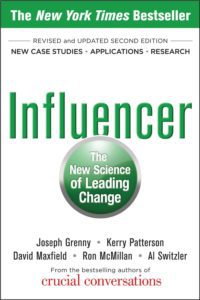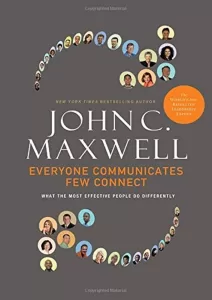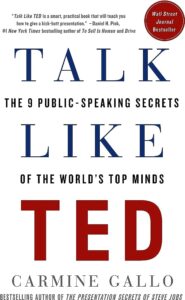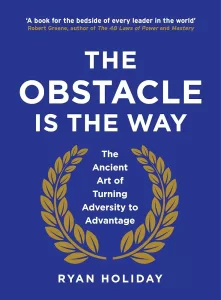Book Review: “Influencer”
Book: Influencer by Kerry Patterson, Joseph Grenny, David Maxfield, Ron McMillan, and Al Switzler
Reviewer: Bobby Powers
My Thoughts: 8 of 10
The team at Vital Smarts (Patterson, Grenny, et al.) have written some of my favorite books on leadership and communication. Their book Influencer reveals key insights into how to influence others. The concepts apply across many fields—non-profit organizations, social entrepreneurship platforms, for-profit corporations, etc., as evidenced by the wealth of examples cited in the book.
Takeaways from the Book
Focus on Behaviors
- “When faced with a number of possible options, take care to search for strategies that focus on specific behaviors…It turns out that all influence geniuses focus on behaviors…They start by asking: In order to improve our existing situation, what must people actually do?”
- “Master influencers know that a few behaviors can drive big change. They look carefully for the vital behaviors that create a cascade of change. No matter the size of the problem, if you dilute your efforts across dozens of behaviors, you’ll never reach critical mass. If your problem is common, odds are the research has already been done for you.”
- “When behaviors must be customized to your personal or local circumstance, look for vital behaviors by studying positive deviance. Look for people, times, or places where you or others don’t experience the same problems and try to determine the unique behaviors that make the difference.”
- “When it comes to altering behavior, you need to help other answer only two questions. First: Is it worth it? (If not, why waste the effort?) And second: Can they do this thing? (If not, why try?)”
Persuading Others to Follow
- “The great persuader is personal experience. With persistent problems, it’s best to give verbal persuasion a rest and try to help people experience the world as you experience it.”
- “The most powerful incentive known to humankind is our own evaluation of our behavior and accomplishments.”
- “The biggest motivators of excellence are intrinsic. They have to do with people’s accountability to themselves. It’s wanting to do well, to be proud, to go home happy having accomplished something.” -Don Berwick
- “You must replace judgment with empathy, and lectures with questions. If you do so, you gain influence. The instant you stop trying to impose your agenda on others, you eliminate the fight for control.”
- A research study conducted by Dr. Everett Rogers determined that "the merit of an idea did not predict its adoption rate. What predicted whether an innovation was widely accepted or not was whether a specific group of people (opinion leaders) embraced it. Period.”
Personal and Team Leadership
- “Who shall set a limit to the influence of a human being?” -Ralph Waldo Emerson
- “If you aren’t willing to go to the mat when people violate a core value (such as giving their best effort), that value loses its moral force in the organization.”
- “Insist on immediate feedback against clear standards. Break tasks into discrete actions, set goals for each, practice within a low-risk environment, and build in recovery strategies. Finally, make sure that you apply the same deliberate practice tactics to physical, intellect, and even complex social skills.”
- “I learned a long time ago that credit is infinitely divisible. Give it away every chance you get, and there’s always plenty left for you.” -Dr. Don Berwick
- “When choosing rewards, don’t be afraid to draw on small, heartfelt tokens of appreciation. Remember, when it comes to extrinsic rewards, less is often more. Do your best to reward behaviors and not merely outcomes. Sometimes outcomes hide inappropriate behaviors.”
The Power of Environment
- “Rarely does the average person conceive of changing the physical world as a way of changing human behavior. We see that others are misbehaving, and we look to change them, not their environment…Consequently, one of our most powerful sources of influence (the physical environment) is often the least used because it’s the least noticeable.”
- “The fact that different groups of employees are exposed to wildly different data streams helps explain why people often have such different priorities and passions. Different groups, departments, and level of employees worry about very different aspects of the company’s success, not because they hold different values, but because they’re exposed to different data…It’s hard to expect people to act in balanced ways when they have access to only one data stream.”
- “Simply put, propinquity is physical proximity, and (Leon) Festinger and others spent a good amount of time studying how it affects our behaviors and relationships…Festinger discovered that the frequency and quality of human interaction is largely a function of physical distance…At the corporate level, bosses who interact the most frequently with their subordinates generally have the best relationships. And who interacts the most often? Bosses who are located closest to their direct reports…If you want to predict who doesn’t trust or get along with whom in a company, take out a tape measure."
Think you’d like this book?
Other books you may enjoy:
- The Power of Habit by Charles Duhigg
- Switch by Chip Heath and Dan Heath
- Influence: The Psychology of Persuasion by Robert Cialdini
Other notable books by the authors:
Want to become a stronger leader?
Sign up to get my exclusive
10-page guide for leaders and learners.






